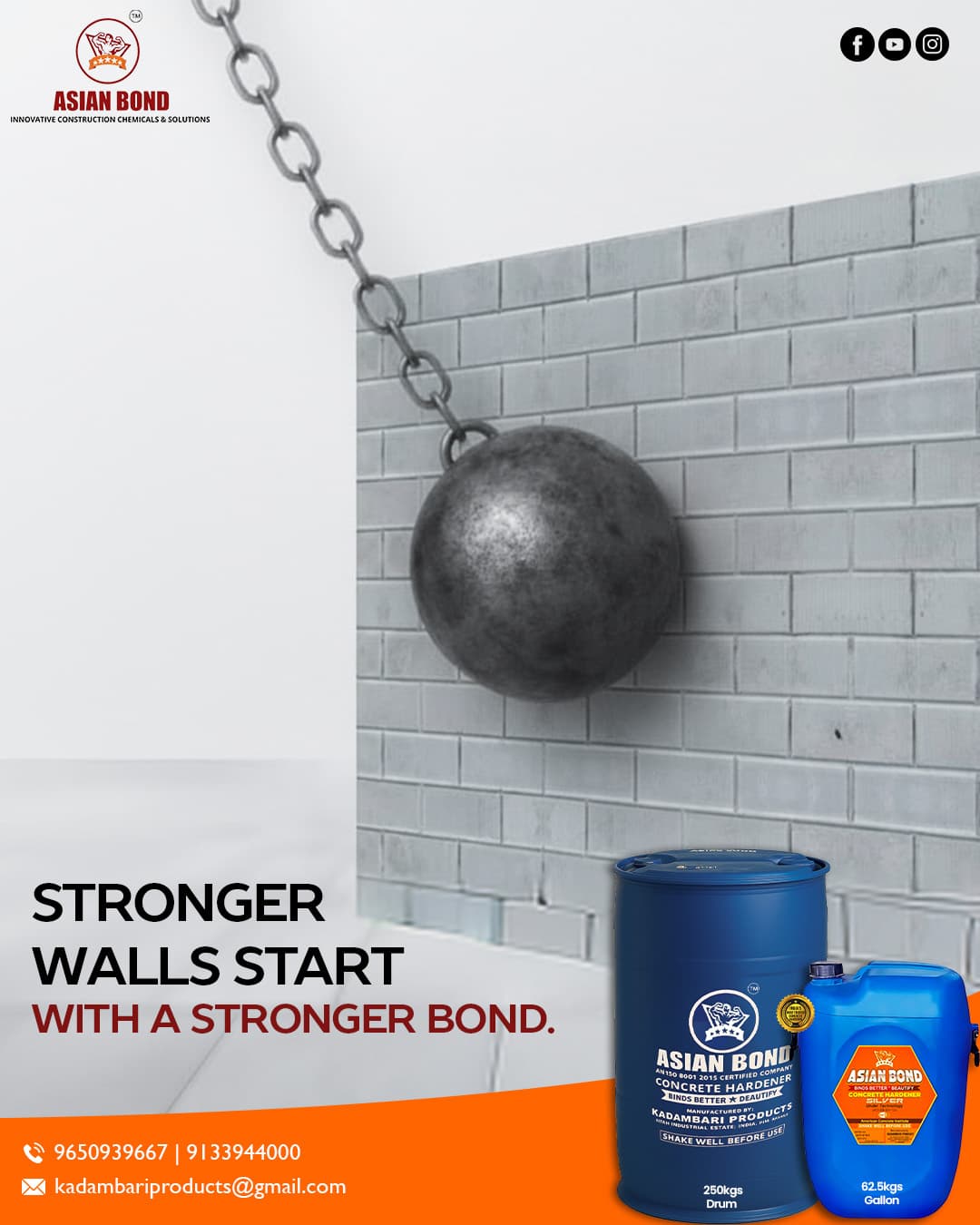Chemical Hardener for Concrete
What’s a Concrete Hardening Agent?
A chemical hardener for concrete is typically a liquid made from silicate or similar compounds. It penetrates the surface and reacts with free lime inside the concrete. During this process, additional C–S–H gel forms, filling pores and increasing hardness, density, and resistance to wear. Because of this pore-sealing effect, modern hardeners are widely used as both toughening agents and surface sealers for factories, paver blocks, and masonry units.
How a Concrete Hardener Works
When applied to a clean concrete or brick surface, liquid hardener moves into microscopic pores and chemically reacts with calcium hydroxide. This generates new C–S–H gel—the same compound responsible for concrete’s core strength. The result is a denser, stronger, dust-free surface that performs far better under abrasion, impact, chemicals, or weather conditions.
Key Benefits
- Improved abrasion resistance for old or new floors
- Reduced dusting and cleaner indoor conditions
- Better chemical resistance against oil, moisture, and industrial solvents
- Enhanced durability in warehouses, manufacturing units, and storage facilities
- Longer service life with fewer repairs or replacements
Why Denser Concrete Lasts Longer
When concrete pores fill with C–S–H gel, the structure becomes more compact. This slows down water absorption, chemical intrusion, and micro-damage. It prevents cracking, flaking, and surface erosion—especially in industrial spaces exposed to fumes, heavy traffic, or environmental stress.
Liquid Concrete Hardener for Bricks & Blocks
Liquid concrete hardener penetrates deeply into bricks, paver blocks, and concrete blocks. It improves early and long-term strength, reduces moisture intake, and prevents surface crumbling. Builders use it for exterior walls, walkways, and precast units where durability and weather resistance matter.
Concrete Hardener for Paver Blocks
Paver blocks face constant traffic, weather fluctuations, and exposure to salts and chemicals. A chemical hardener strengthens edges, reduces chipping, and preserves long-lasting colors. Brands like Asianbond supply high-performance paver block hardeners widely used across India.
Floor Hardener Chemical for Factory Use
Factory floors deal with forklifts, pallet movement, oil spills, and vibration. A factory-grade floor hardener creates a dense, scratch-resistant, dust-free surface that is easier to clean and withstands heavy industrial loads. Many contractors combine a dry-shake hardener with a liquid sealer for maximum strength.
Types of Chemical Hardeners
- Sodium Silicate – economical, effective for regular floors
- Potassium Silicate – better penetration, reduced efflorescence
- Lithium Silicate – premium option, deep reaction, minimal whitening
- Fluorosilicates – high chemical resistance
- Polymer-modified Hardeners – added bonding and fast setting
Dry-Shake vs. Liquid Hardeners
| Type | Applied On | Benefits |
|---|---|---|
| Dry-Shake Hardener | Fresh concrete | High abrasion resistance, dense top layer |
| Liquid Hardener | Set concrete, pavers, bricks | Deep penetration, pore sealing, refurbishment use |
Concrete Surface Hardener Pricing
Concrete surface hardener prices vary depending on chemistry, brand, and whether it’s powder or liquid. Premium lithium-based products cost more but last longer. Always compare cost per liter and area coverage—not just per-kilogram pricing—to understand true value.
Choosing the Best Concrete Hardener in India
Look for ISO-certified products, proven site results, and formulations suited for Indian weather. Asianbond and similar leading brands offer reliable hardeners for floors, blocks, tiles, and masonry without relying on weak “liquid glass” mixes. Durability, deep penetration, and long-term performance should guide the selection.
What Makes Asianbond Different
Asianbond specializes in surface hardeners for pavers, bricks, and factory floors. They supply bulk quantities, offer on-site guidance, and customize formulations based on material type. Their eco-friendly mixes contain fewer harsh chemicals while delivering industrial-grade strength.
Applications: Pavers, Bricks & More
- Strengthening paver block edges and preventing chipping
- Deep brick penetration for weather resistance
- Industrial floors needing high abrasion resistance
- Walkways, parking lots, and public surfaces exposed to wear
How to Apply Liquid Hardener Correctly
- Clean the surface—remove dust, oil, or old coatings.
- Apply with sprayer, roller, or brush in an even coat.
- Keep the surface damp for the recommended reaction time.
- Remove excess material to avoid white residues or slick spots.
Bulk Purchasing for Contractors
Buying concrete hardener in bulk lowers cost per liter and ensures continuous supply for large projects. Local distributors provide quick delivery and technical support, while manufacturers like Asianbond supply factory-direct rates for high-volume orders.
Finding a Local Supplier
Many regional dealers stock standard brands like Asianbond. For major projects, contractors often order directly from Indian admixture manufacturers to secure better pricing and technical backup.
Environmental & Safety Notes
Modern hardeners use water-based formulas with lower solvent levels. Always wear gloves and eye protection and ensure ventilation during application.
How to Choose the Right Hardener
Match the hardener to the concrete condition—old, new, paver, brick, or industrial floor. Asianbond’s technical support and product sheets help ensure correct selection for real-world conditions.
Why Asianbond Makes Sense Long-Term
From paver enhancers to industrial floor sealers, Asianbond provides durable, cost-effective solutions across India. Large buyers get guidance on mix ratios, curing, and maintenance for optimal results.
